When did most Americans search for 'move to Canada'?
- Published
As sure as "Results Wednesday" follows Super Tuesday, Americans were reacting to the outcome of the voting by searching on Google for how to move to Canada.
On this occasion, a tweet by Google's data editor, Simon Rogers, alerted the world to renewed interest. He noted a spike of 350% in searches over a four-hour period for "how can I move to Canada" coming from the United States, external.

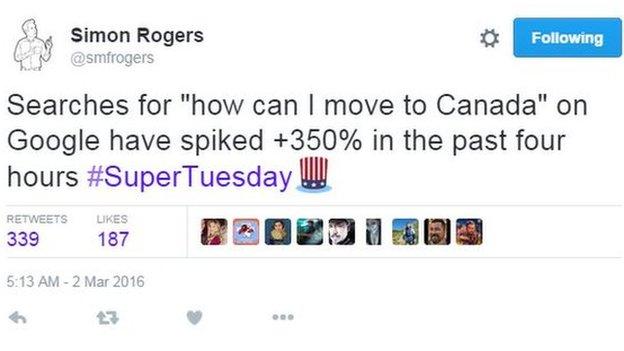

The peak in relative interest was at 05:32 GMT, around 20 minutes after Mr Rogers' tweet. Analysis of Google's own data shows that interest had apparently reached a plateau shortly before his tweet, which sparked considerable further interest...
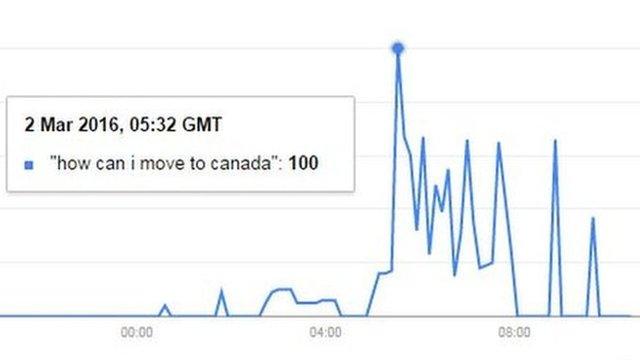

Toronto City councillor Norm Kelly's helpful direction to the Canadian Immigration Service's website has garnered over 32,000 retweets, suggesting that there was also significant interest on social media...


The link to the "Apply to immigrate to Canada" page, external has been tweeted more than 29,000 times in the past 24 hours, a staggering growth in interest.
Some kind Canadians have offered to take in those fleeing the US.

While others recommended the move on the basis of Canada's finest cuisine.

What is poutine, you ask. The national dish of Quebec, consisting of chips, cheese curds and gravy. It looks like this.


Not that the website administrators will be thanking Norm Kelly or anyone else - it had a yellow bar warning about delays, which may or may not be related to the recent interest.
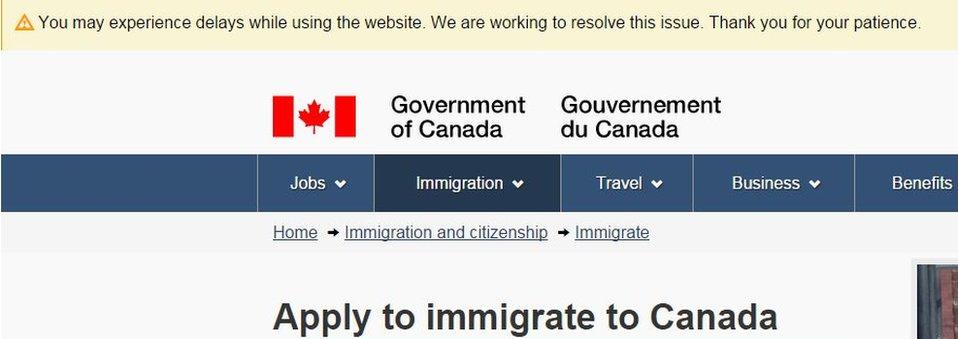

Bush sets interest in Canada afire
This is but a speed hump in the long and glorious history of American threats to emigrate or secede, which are at least as old as the internet.
The biggest recorded spike in interest was when George W Bush was elected president for a second term in November 2004. Back then the Canadian immigration service reported a six-fold increase in interest, external on its website.
Below we've shown both searches for "move to Canada" (in blue) and "moving to Canada" (in red) over Super Tuesday/Results Wednesday. The blue peak is at about 06:30 GMT on Wednesday.
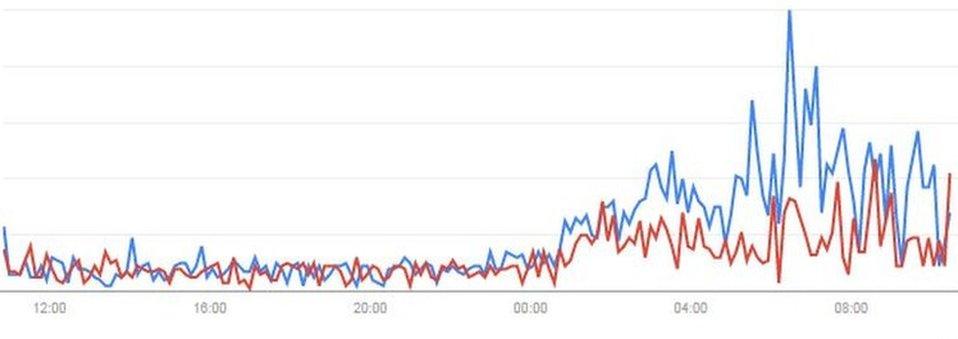

Where do they want to move from?
In the past 24 hours, most interest has come from Massachusetts, where both the leading candidates, Hillary Clinton and Donald Trump won their primaries.
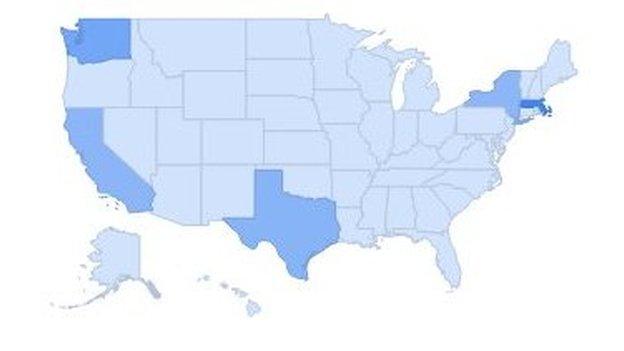

The state with the most interest in a "move to Canada" - since Google's records began in 2004 - is Washington, which lies on the border. So, not far to go.
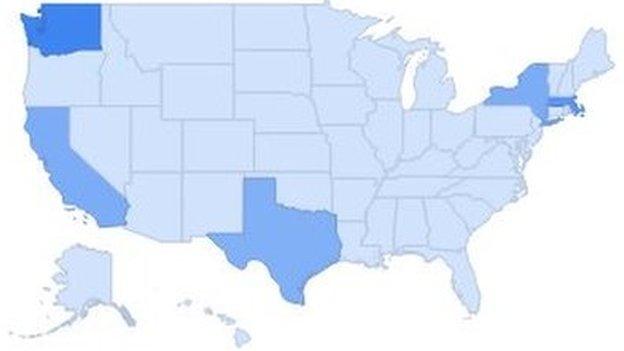

Will anyone actually move to Canada?
We've been here before. Studying the trends, there's an uptick whenever the country elects a new president. Barack Obama's two elections come nowhere near the peak of George W Bush, but there are still noticeable peaks around the time of both his victories.
Alec Baldwin is perhaps the most famous American to threaten departure in the face of an incoming president. He was besieged by email in the pre-social era for his threat to leave if George W Bush was elected in 2000. There is no indication he left the US after Mr Bush was re-elected in 2004.
- Published8 November 2016

- Published7 November 2012
